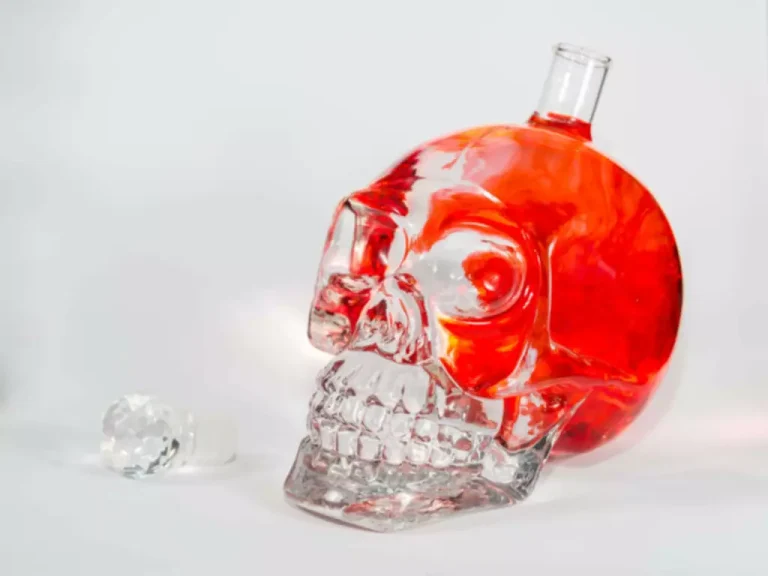
Second, AUD may undermine a person’s psychological mechanisms to cope with traumatic events, by disrupting arousal, sleep, and cognition, thus increasing the likelihood of developing PTSD. Third, AUD and PTSD have shared risk factors, such as prior depressive symptoms and significant adverse childhood events. The mood disorders that most commonly co-occur with AUD are major depressive disorder and bipolar disorder. The hallmarks of anxiety disorders are excessive and recurrent fear or worry episodes that cause significant distress or impairment and that last for at least 6 months.
- Alcohol withdrawal is a serious condition that can become life-threatening if not treated.
- A number of NICE mental health guidelines have specifically considered the interaction between common mental health problems and drug and alcohol use.
- Again, it’s important to create a timeline of mental health symptoms and alcohol use and to collaborate as needed with mental health specialists for selection of pharmacotherapies and psychosocial interventions.
- Alcohol is also well-known to increase the activity of monoaminergic modulatory neurotransmitters in the mesolimbic system of the brain 92, 199.
- Individuals with a high level of social anxiety rather avoid social interactions or endure them with discomfort.
18.3. Studies considered for review
Behavioral science experts believe that all entities capable of stimulating a person can be addictive; and whenever a habit changes into an obligation, it can be considered as an addiction. Researchers also believe that there are a number of similarities as well as some differences between drug addiction and behavioral addiction diagnostic symptoms. Using alcohol during adolescence (from preteens to mid-20s) may affect brain development, making it more likely that they will be diagnosed with AUD later in life. However, most people with AUD—no matter their age or the severity of their alcohol problems—can benefit from treatment with behavioral health therapies, medications, or both. Alcohol withdrawal–related anxiety is thought to reflect manifestations of numerous adaptive changes in the brain resulting from prolonged alcohol exposure, most notably alterations in the stress systems active in the brain and the body’s hormone (i.e., endocrine) circuits. The hormonal stress response is mediated by a system known as the hypothalamic–pituitary–adrenocortical (HPA) axis.
Coping and support
- Non-pharmacological treatments are an important therapeutic option for people with alcohol-related problems.
- Finally, psychological treatments can also be used to help people experiencing harmful alcohol use or dependence to address coexisting problems such as anxiety and depression.
- Firstly, given that our study employs an observational cross-sectional design, it is not possible to establish causal relationships among the variables.
- Of those who admitted to being current alcohol drinkers in the US, less than half were binge drinkers (45%), and ‘only’ about 12% reported heavy alcohol use 29.
- In essence, long-term treatment for individuals who have “psychological addictions” or “psychological dependence” compared to individuals who have developed “physical addiction” or “physical dependence” should not differ significantly in terms of the overall plan of recovery.
In the EU, 37% of adolescents (aged 15–16) and 19% of adults (aged 18+) reported heavy episodic drinking at least once a month 31. This may support the view that alcohol consumption in non-addicted individuals is not driven by alcohol’s pharmacological reinforcing action and an initiated addiction trajectory that would eventually lead every user to AUD. Instead, it may be maintained by evolutionary developed benefits that may frequently outweigh the possible harm 3, 4.
- The quality of this evidence is moderate therefore further research is likely to have an important impact on confidence in the estimate of the effect.
- It may also dampen intrusive cognitive symptoms, such as the distressing recollection of an aversive event during flashbacks 139.
- In some patients, alcohol use precedes the first symptoms of schizophrenia 143.
- Alcohol use disorder can include periods of being drunk (alcohol intoxication) and symptoms of withdrawal.
Coping with Grief Following Stillbirth or Infant Loss
The review team conducted a systematic review of RCTs that assessed the beneficial or detrimental effects of social network and environment-based therapies in the treatment of alcohol dependence or harmful alcohol use. Six trials relating to clinical evidence met the eligibility criteria set by the GDG, providing data on 2,556 participants. All six studies were published in peer-reviewed journals between 1997 and 2009. When studies did meet basic methodological inclusion criteria, the main reason for exclusion was that the studies were assessing the efficacy of 12-step groups (that is, AA) directly (not TSF) and hence were also naturalistic studies. Other reasons included a drug and not alcohol focus, secondary analysis and not being directly relevant to the current guideline.
However, the effect size was small (0.1) and was no longer seen at longer follow-up points of 3 to 15 months. Psychosocial treatments are those that combine psychological dependence on alcohol both psychological and social environment-focused modalities within a treatment plan. A 2014 review notes that psychosocial treatments are an effective way to treat alcohol use disorder. But as with any chronic condition, there are varying levels of success when it comes to treatment, as well as the type of treatment used. In many cases, the longer a person abstains from alcohol, the more likely it is that sobriety will be maintained.
- All interventions for people who misuse alcohol should be the subject of routine outcome monitoring.
- Considering the importance of prior literature on behavioral addiction, the primary aim of this study was to review the major approaches expressed in this field.
- These medications have been shown to help people with dependence reduce their drinking, avoid relapse to heavy drinking, and achieve and maintain abstinence.
- No significant difference between TSF methods was observed in attrition post-treatment or at various follow-up points up to 12 months.
- Importantly, there was a lack of evidence for their effectiveness compared with treatment as usual or control.
Mental Health Issues: Alcohol Use Disorder and Common Co-occurring Conditions
Goodman’s17 and Griffiths’18 criteria for behavioral addictions are presented below Tables 1 and 2. This experimental design can be further modified by the use of discriminative contextual cues. This means that certain contextual cues (e.g., a unique odor or testing environment) will indicate to the animal that responding will pay off with delivery of alcohol reinforcement, whereas a different contextual cue is used to signal that responding will not result in access to alcohol. If the responding is extinguished in these animals (i.e., they cease to respond because they receive neither the alcohol-related cues nor alcohol), presentation of a discriminative cue that previously signaled alcohol availability will reinstate alcohol-seeking behavior. Sensitivity analyses were conducted to assess the effect of combining studies investigating brief motivational techniques with structured MET studies.
How Reiki Therapy Helps Restore Harmony to Mind and Body

Standard treatment was based on the principles of motivational interviewing, relapse prevention and psychoeducational films, with a focus to support the motivation to seek help for substance-misuse problems. Of the eight included trials, six assessed motivational techniques versus another active intervention met criteria for inclusion. Significant advancements have been made in understanding the neurobiological underpinnings and environmental factors that influence motivation to drink as well as the consequences of excessive alcohol use.
Array Behavioral Care and KeyCare Unite to Improve Mental Health Integration
Studies were further excluded because they did not meet methodological criteria (see Chapter 3). When studies did meet basic methodological inclusion criteria, the main reasons for exclusion were that the study was not directly relevant to the review questions, or no relevant alcohol-focused outcomes were available. Overall, no significant difference was observed between counselling and other therapies up to 18-month follow-up in time to first drink (lapse), time to first heavy drink (relapse) and reducing heavy drinking episodes.

The social impact of alcohol

The review team conducted a systematic review of RCTs that assessed the beneficial or detrimental effects of multi-modal therapies in the treatment of alcohol dependence or harmful alcohol use. The review team conducted a systematic review of RCTs that assessed the beneficial or detrimental effects of psychodynamic therapies in the treatment of alcohol dependence or harmful alcohol use. In maintaining abstinence, no significant difference was observed between counselling and other therapies when assessed up to 6-month follow-up. However, bar the 6-month follow-up, these results are based on a single study (OFARRELL1992) whereas in the analyses assessing couples therapies versus other active therapies, more studies were included in the analyses for this outcome.
Role of Withdrawal-Related Stress and Anxiety in Relapse
There was very limited evidence of low-to-moderate quality to support the efficacy of counselling, short-term psychodynamic therapy, multi-modal treatment, self-help-based treatment, psychoeducational interventions and mindfulness meditation. These studies reported a significant effect of mindfulness meditation on alcohol consumption. Overall, there is limited and poor-quality evidence that does not support the use of mindfulness-based meditation for treating alcohol dependence and harmful alcohol use.
